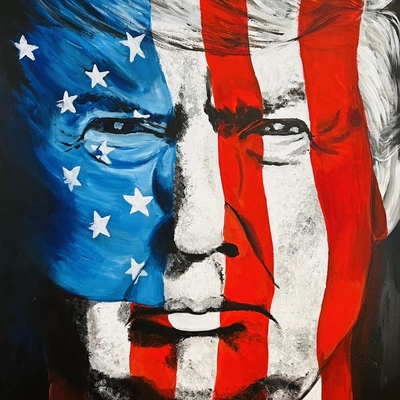Stay informed on the latest Truth Social posts from Donald Trump (@realDonaldTrump) without the doomscrolling. Consider it a public service for your mental health. (Why?)
- The United States has a significant and persistent trade deficit with Algeria.
- This trade deficit is attributed to Algeria's 'Non-Tariff, Policies and Trade Barriers'.
- Effective August 1, 2025, the U.S. will impose a 30% tariff on all products from Algeria imported into the United States.
- Goods transshipped to evade higher tariffs will be subjected to the higher tariff rate.
- The 30% tariff is less than what is required to eliminate the existing trade disparity.
- Algerian companies or entities that establish manufacturing or production within the United States will not be subject to these tariffs.
- Any decision by Algeria to raise its own tariffs will result in an additional 30% tariff imposed by the U.S. on top of the existing 30%.
- The trade deficit is considered a 'major threat to our Economy and, indeed, our National Security!'.
- The U.S. commits to quick and professional approval processes for Algerian companies wishing to manufacture in the U.S.
The imposition of a 30% tariff on all Algerian products and the explicit threat of compounding tariffs for any retaliatory measures indicate a highly protectionist and assertive trade policy. While Algeria is not a primary trading partner for the U.S. in terms of overall volume, this aggressive stance could set a precedent for future U.S. trade policy with other nations. Such policies introduce significant uncertainty for global supply chains, corporate earnings (especially for companies with international exposure), and investor sentiment. This could lead to a moderate negative impact on the S&P 500, particularly for sectors reliant on international trade or those potentially affected by broader trade disputes.
The letter outlines a significant unilateral economic measure (tariffs) by the United States against Algeria, citing a 'major threat to our Economy and, indeed, our National Security!' due to the trade deficit. It also threatens further punitive action if Algeria retaliates with its own tariffs. While this indicates a high potential for economic friction and strained diplomatic relations, it does not explicitly reference military threats or direct conflict escalation, thus keeping the geopolitical risk score low in terms of international conflict escalation.
- Commodities: The tariffs on 'all Algerian products' could impact the trade of hydrocarbons (oil and natural gas), as Algeria is a significant producer. This could lead to specific supply chain adjustments or, if retaliatory measures affect energy, influence global energy prices. Overall, trade tensions tend to support safe-haven assets like Gold (XAU) which could see a modest rise. Short-Term Watchlist: XAU/USD price action, any specific headlines regarding energy trade between US and Algeria. Medium-Term Focus: Broader inflation trends if tariffs become widespread, USD trajectory influencing commodity prices.
- Currencies (Forex): The assertive stance on trade could strengthen the US Dollar Index (DXY) as a safe-haven asset amid increased global trade uncertainty. Currencies of countries with significant trade ties to the U.S. could experience volatility. Short-Term Watchlist: DXY levels, Treasury yields. Medium-Term Focus: Central bank divergence as trade policy impacts economic outlooks, global growth differentials.
- Global Equities: Companies with direct trade or investment exposure to Algeria would face immediate impacts. More broadly, if this policy signals a wider shift towards protectionism, it could create uncertainty for global supply chains, corporate earnings, and overall economic growth, potentially leading to sell-offs in major indices like the S&P 500, Nasdaq, and European/Asian equities. Short-Term Watchlist: Futures open, sector-specific movements (e.g., industrials, materials, energy). Medium-Term Focus: Earnings revisions, global macro data (e.g., manufacturing PMIs), geopolitical overhangs affecting capital flows.
- Fixed Income (Bonds): Increased trade tensions and economic uncertainty could lead to a flight to safety, causing US 10Y and 2Y yields to fall as demand for U.S. Treasuries increases. Credit spreads, particularly for companies exposed to trade disputes, might widen. Short-Term Watchlist: UST 10Y yield levels, TED spread. Medium-Term Focus: Fed policy responses to economic slowdowns or inflation from tariffs, fiscal concerns related to potential economic impacts.
- Volatility / Derivatives: The VIX (CBOE Volatility Index) is likely to spike in response to increased uncertainty surrounding trade policy and potential economic disruptions. Options positioning could reflect increased hedging demand. Short-Term Watchlist: VIX levels, VIX futures term structure. Medium-Term Focus: Volatility regime shifts influenced by macro policy uncertainty.
- Crypto / Digital Assets: Bitcoin (BTC) and other digital assets typically behave as risk-on assets, so they could experience downward pressure if global market sentiment deteriorates due to escalating trade tensions. Liquidity cycles and correlations to tech stocks would remain relevant. Short-Term Watchlist: BTC/USD price action, funding rates. Medium-Term Focus: Regulatory news and overall macro liquidity backdrop.
- Cross-Asset Correlations and Systemic Risk: The potential for trade disputes to broaden could lead to breakdowns in normal correlations (e.g., equities and bonds selling off together) as systemic risk perception rises. Watch for signs of liquidity stress or heightened risk aversion across markets. Short-Term Watchlist: MOVE index, junk bond ETFs, gold/USD co-movement. Medium-Term Focus: Central bank intervention responses, market plumbing stress from capital flows.
- Retail Sentiment / Market Psychology: While the direct impact on retail-favorite stocks might be limited to those with specific Algerian exposure, a broader perception of escalating trade wars could dampen overall retail enthusiasm for risk assets. Short-Term Watchlist: Social media sentiment regarding trade, overall market trends. Medium-Term Focus: Social media influence on market structure, potential for coordinated retail pushes in response to macro events.

